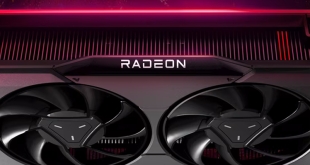Looking at all of the markets in which it wants to compete, it's hard to see AMD making a success of 2013 without a serious merger or acquisition. KitGuru reads the financials (and tea leafs) to see what might be brewing over in Austin.
While AMD has a big brand name (over $6 billion in revenues for each of the past 2 years and a lot of experience dealing with multi national clients), it's only worth $1.73 billion (MarCap) at the time of writing.
Altera, on the other hand, posted just $1.95 billion in 2010 and has a MarCap of more than $11 billion on Boxing Day 2012.
If some of those conditions/numbers seem familiar, then it's probably because they have similar proportions to the situation AMD found itself in before merging with ATi.
Larger company, well-established, but missing some vital technologies which the smaller company did very well.
There's also the sharing of VPs. Executive movement happened between AMD and ATi in the time before the takeover – and 2012 saw the head of Altera's Military/Industrial/Computing division (Arun Iyengar) move into a Corporate Vice President role for AMD's embedded business group.
Both companies have stepped up their work with ARM in 2012 as well. For AMD, that meant the announcement of co-operative projects and the drive to enable ARM with 64-bit technology for future chips. With Altera, it was the announcement of the Altera version of the ARM Development Studio 5 (DS5) for easier debugging on future projects. This was presented at the ARM Technical Symposium in Paris, earlier this month.
Even though AMD does not have the MarCap right now, it's clearly the larger company – so would probably take the lead on any merger possibility.
There's also the question of the liberation of funds over the past 12 months – including the move to sell its HQ to raise up to $200m and the issue of almost $500m in senior notes.
We've long been asking why AMD needs so much cash. Think about it this way: We all walk around with plastic cards in our pockets, ready to pay for stuff – but when we hit a cash point for £200 – are we aiming to save it or spend it? Cash has a specific purpose and, for a major corporate, you must be thinking ‘mergers and acquisitions'.
Right now, AMD has the bigger footprint, but Altera has the positive future plan. Both have climbed into bed with ARM and, we guess, executives for both companies fancy themselves working for one of the world's largest organisations. Combining the revenues of both AMD and Altera would mean they hit around the $8 billion mark. That would put them on the same kind of level as memory giant Micron.
To get onto the GLOBAL list of 500 biggest companies will take a bit more effort. At the end of 2011, 3rd party manufacturer Wistron was bringing up the rear, positioned at number ‘500' with revenues of $19.5 billion.
But it's worth bearing in mind that the challenge for AMD execs is not only revenue – which you can buy – it's also the MarCap, what the stock exchange thinks you're worth. Combined with Altera, AMD's present day valuation of $1.73 billion would be smashed, no doubt. But what else does Altera bring to the table?
Eagle-eyed KitGuru readers will remember that we covered Altera's ability to pack 3.9 billion transistors onto a single chip back in April 2011 – so they're no slouches when it comes to pushing the extremes of modern technology. And that was the Stratix V FPGA on a 28nm process.
Without doubt, the successful merger of these two companies would create something interesting in the market. It would certainly work alongside AMD's stated intentions during its Q3 financial call – where embedded would become part of the heart of the companies future.
Whatever the outcome of any buy-out conversations, one thing remains: Alongside ARM, Altera is another British success story. Founded by an engineer from Lancashire called Rodney Smith in 1983, with seed capital of £300,000, the name of the company is a shortened version of ‘alterable', because the company believes in change. Rodney learned his trade in the British armed forces in REME (Royal Electrical and Mechanical Engineers). Ironically, as a life-long restorer of vintage cars, Rodney died in a road accident in May 2007 – but his dream lives on. Altera has come along way from its first range or erasable/programmable chips – but is its board about to join the ranks of the Fortune 500?

.
KitGuru says: It's an intriguing possibility and one that we've questioned AMD about. We'll let you know what they say – even if it's ‘No comment'.
Comment below or in the KitGuru forums.
 KitGuru KitGuru.net – Tech News | Hardware News | Hardware Reviews | IOS | Mobile | Gaming | Graphics Cards
KitGuru KitGuru.net – Tech News | Hardware News | Hardware Reviews | IOS | Mobile | Gaming | Graphics Cards


